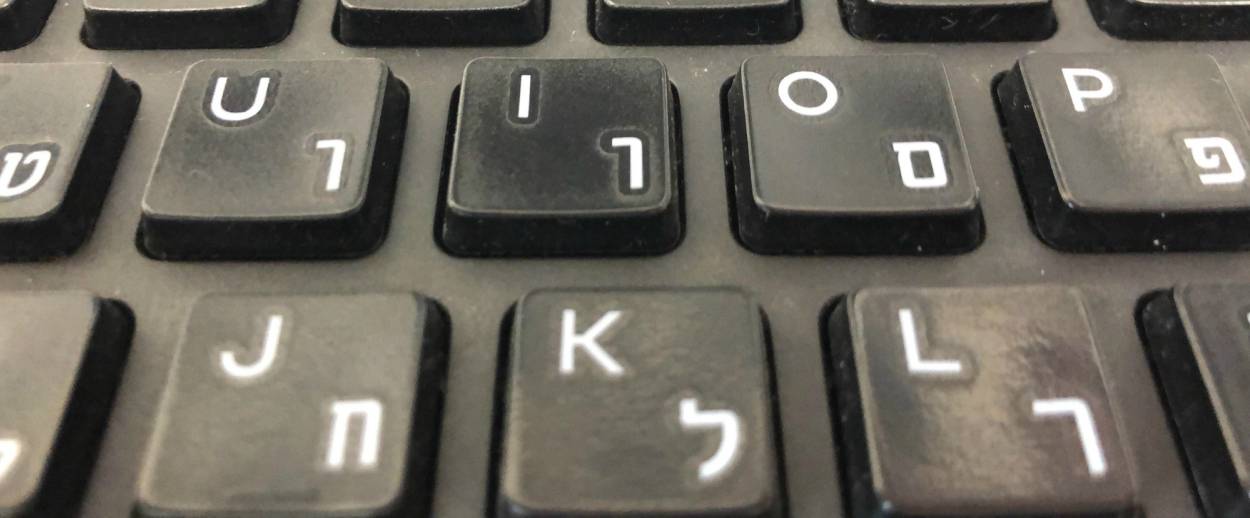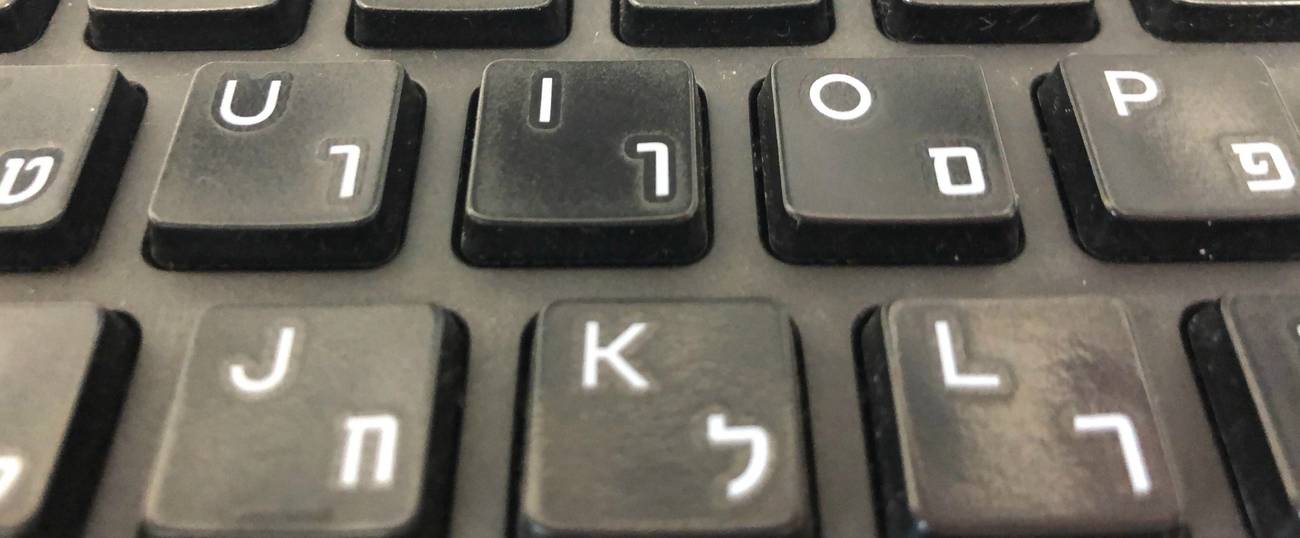Halachic Institute Invents Shabbat-Friendly Technologies
Need to use a keyboard on Shabbat? Can’t fulfill the mitzvah of lighting candles? Zomet, a non-profit research outfit in Israel, has the gadgets you need.




My favorite part of any James Bond movie has always been the bit when the suave spy saunters over to meet Q, his gadget guy, and is equipped with a battery of thingamajigies that shoot, explode, and otherwise come in handy when being chased by baddies down the side of a mountain, say, or atop a nuclear submarine. But while Q’s toys are nice, they do little to help anyone observe the Sabbath; for that, there’s Zomet, the Israeli-based institute for Halacha and Technology.
Recently, Zomet, a non-profit organization which specializes in coming up with ultra-modern solutions to very ancient restrictions, announced some of its new products. What, for example, might you do if you had to operate a keyboard during Shabbat? Writing, clearly, does not meet the standards of pikuach nefesh, or mortal danger in light of which an observant Jew is allowed to work on the Sabbath. But sometimes using a keyboard is difficult to avoid: Think, for example, of a doctor filing a prescription, or a security guard needing to operate a computerized system. To address this problem, the folks at Zomet came up with the Shabbat Keyboard: This invention, the institute’s site explains, “operates on the principle of gramma (indirect action), so that it can be used on Shabbat. The buttons on the keyboard are on-off switches. A special mechanism cycles through all the buttons every few seconds. If it “discovers” that the status of one of the buttons has changed (such as a function key) the desired action will occur.”
Another lovely innovation are the Electric Shabbat Candles: Say you’re hospitalized, or in a hotel room, or anywhere else where lighting a fire is frowned upon. You could, of course, resort to one of those pesky LED contraptions, but that would be mitzvah-as-metaphor, as no actual fire will be lit. But using a special kind of incandescent light bulb solves the problem: Insert the battery, and you can watch the filament heating up, fulfilling the obligation to light a fire.
You could, of course, dismiss these innovations as trifles, or even scoff at them, like some secular Israelis do, as an attempt to cheat God, using technology to subvert religious practices that are no longer compatible with modernity. But you’ll be missing the point. The genius behind Zomet’s work is that, like practically no other R&D outfit working today, it accepts that technology ought to be directed by a higher power, and that innovation oughtn’t to occur simply because we’ve figured something out, but because we’ve carefully considered our priorities and our needs. With so many of our latest inventions revolving around making life a tad more convenient, it’s refreshing to see scientists using technology to preserve traditional ways of life that have sustained and nurtured human beings for thousands of years, not come up with disruptions for fun and profit without caring for the consequences.
Liel Leibovitz is editor-at-large for Tablet Magazine and a host of its weekly culture podcast Unorthodox and daily Talmud podcast Take One. He is the editor of Zionism: The Tablet Guide.